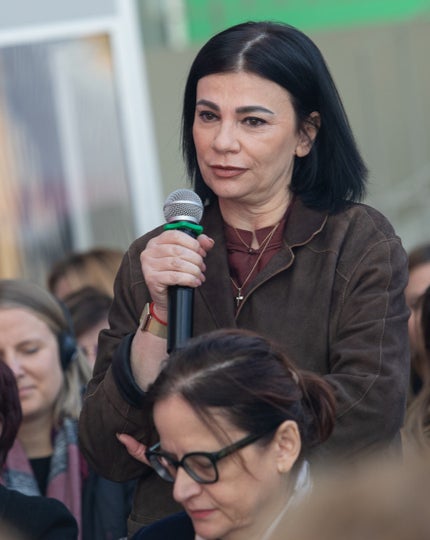The year 2025 marks a pivotal moment in the global pursuit of gender equality and women’s empowerment. Three decades after the adoption of the Beijing Declaration and Platform for Action in 1995, Albania has made significant strides in advancing gender equality. Notable achievements include the development of gender-responsive policies and frameworks, which have been recognized by international bodies such as the CEDAW Committee, GREVIO, and the EU. These advances are contributing to Albania’s path toward EU integration, underscoring that gender equality is not just a moral imperative but a strategic choice for a sustainable and inclusive future.
Marking 30 Years of Progress and Marching Forward– A Journey Towards Gender Equality
Intergenerational Dialogue Unites Feminist Activists and Key Institutions to Reflect on Three Decades of Gender Equality and women’s empowerment in Albania
Date:
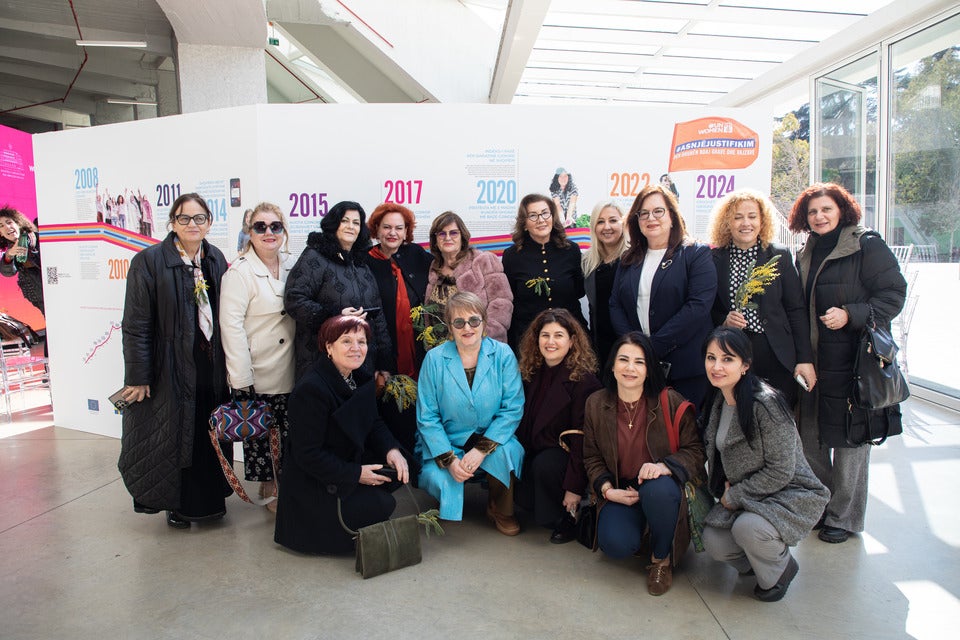
In the framework of International Women’s Day, an Intergenerational Dialogue took center stage, bringing together high-level officials, veteran feminist activists, and young advocates to reflect on Albania’s gender equality progress and the ongoing pursuit of the 2030 Agenda and the Beijing Declaration.
The event gathered representatives from the Ministry of Health and Social Protection, United Nations in Albania, the EU Delegation and the Swedish International Development Cooperation Agency (Sida).
Ms. Albana Koçiu, Minister of Health and Social Protection, emphasized the significant shifts that have taken place over the last few decades:
"Undoubtedly, the generational shift has been immense. Thirty years ago, neither we nor our mothers could have imagined ourselves as policymakers, entrepreneurs, or diplomats. Today, with women holding 50% of ministerial positions, our country ranks among the top 10 in the world for gender balance in government."
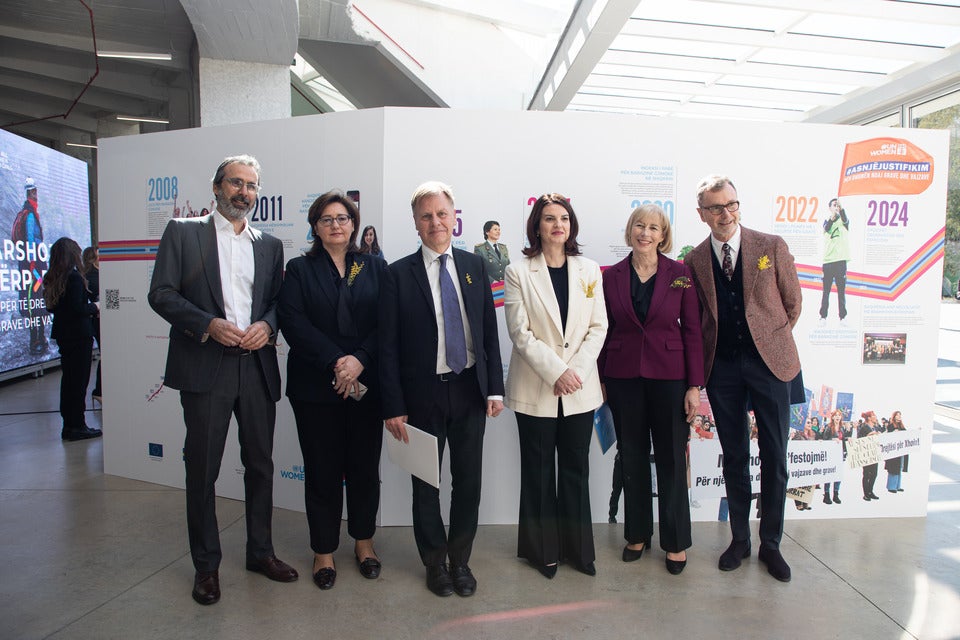
Reflecting on Albania's progress, the Ambassador of the EU, Mr. Silvio Gonzato highlighted the essential role of gender equality in the country’s future aspirations:
International Women’s Day is a moment to reflect on the progress we have made in advancing women’s rights and gender equality, while also recognizing the work that still lies ahead. As we also commemorate the 30th anniversary of the Beijing Declaration, it is important to highlight that the EU’s gender equality policies closely align with its principles—particularly ending violence against women, promoting women’s economic empowerment, and increasing their political participation. Gender equality is a fundamental EU value, enshrined in our Treaties and embedded in all our policies. It is also a key prerequisite for Albania’s EU integration, playing an important role in accession negotiations and shaping the country’s future within the EU. While Albania has made notable progress, now is the time to accelerate implementation for the benefit of women and girls across the country. The EU remains a committed partner and donor, standing alongside Albania on this important journey.
A key highlight of the event was an Interactive Visual Presentation, illustrating Albania’s milestones in advancing gender equality since 1995. Designed in the form of three interconnected decades, the visual pathway captured transformative moments and key achievements.
Erik Illes, Deputy Head of Mission and Head of Development Cooperation at the Embassy of Sweden in Tirana, recalled the significant contributions of pioneers in Albania’s gender equality movement:
“When I look at this timeline, I see the people behind this progress. There are important pioneers who have shaped the gender equality and feminist movements over the past 30 years in Albania. We are proud to have supported your journey toward gender equality.”
Fiona McCluney, the UN Resident Coordinator in Albania, reinforced the call for continued action in her speech:
“2025 is the year we refuse to step back. We must continue to march forward for women’s rights. As partners, we must stand firm for gender equality and the empowerment of women and girls. Albania’s EU accession process provides an excellent opportunity to align governance systems with international standards for gender equality.”
The activity was organized by UN Women in cooperation with the Ministry of Health and Social Protection, financially supported by EU in Albania and the Embassy of Sweden.
Prominent feminist activists from CSOs reflected on the origins of Albania’s women’s movement, shared key experiences, and discussed future priorities for advancing gender equality.
“I remember back in 1993; we would gather in each other’s homes to discuss women’s rights and domestic violence. When we tried to bring attention to the need for an institutionalized movement for women’s rights among our friends and acquaintances, we encountered a major barrier. People would say that there was no violence against women, no inequality, no discrimination.”
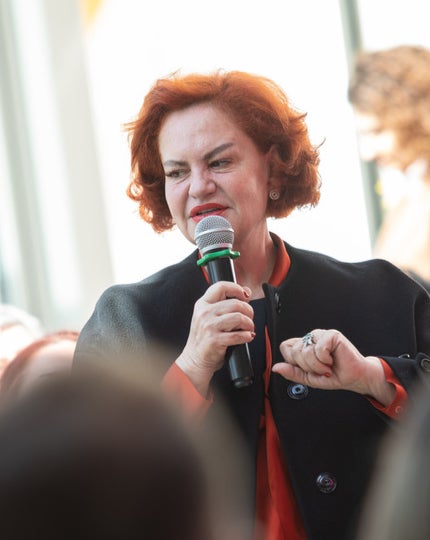
"Change is dynamic, but it has come slowly. I remember how the first meetings and training sessions on women’s empowerment took place behind closed doors. Later, we traveled to different cities across Albania using various means of transport, as it was very difficult back then—there were few resources available to reach and meet other women...”
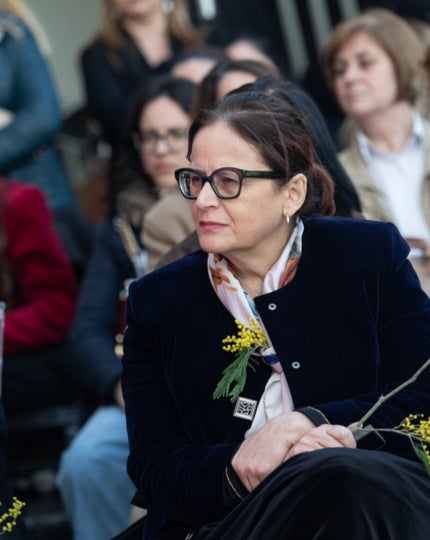
“I would like to mention a heroic woman—one of the first to take up the fight in defense of human trafficking victims in Albania during 1997–1998—Mrs. Vera Lesko. She was threatened—her family and children were in danger. She was forced to leave Albania. Her life was at risk, yet she never backed down. Vera became a role model for me, for my colleagues in civil society”
